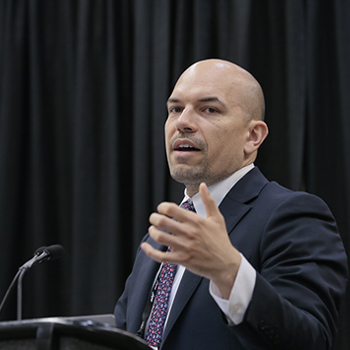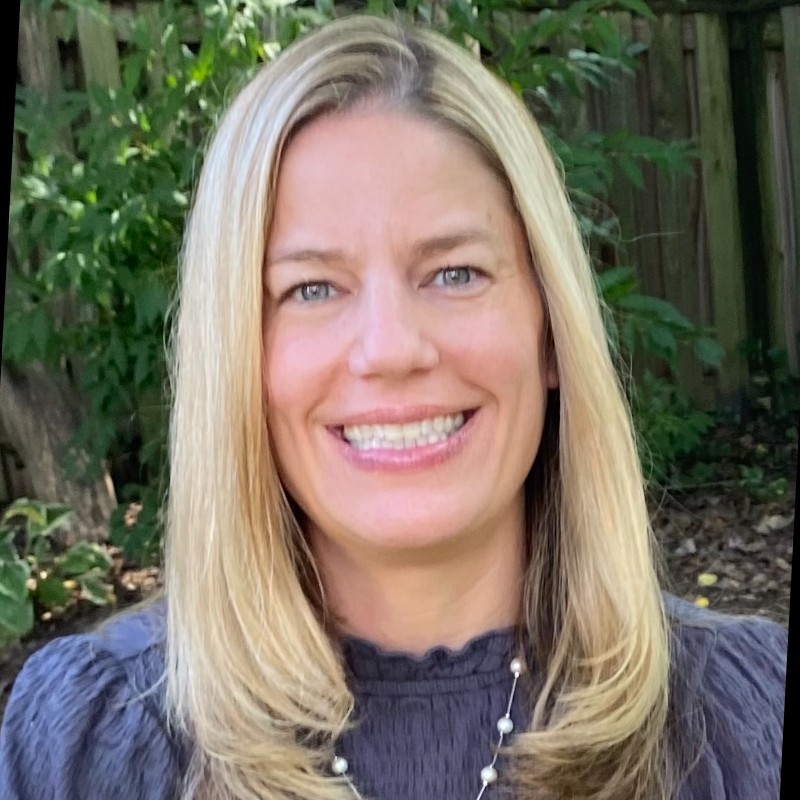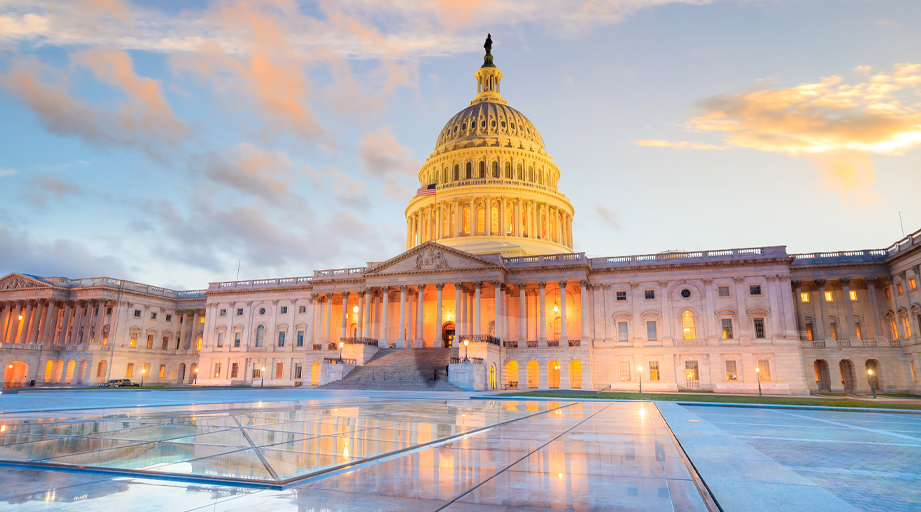
There’s a sea change in the way policymakers think about pharmacists — and that change has big implications for pharmacy, ASHP’s government relations team said at the June 12 advocacy update at the ASHP Summer Meetings & Exhibition in Baltimore, Maryland.

“Today, when we walk in the room with policymakers, there is a default presumption that pharmacists may be playing some role in patient care versus purely thinking of pharmacists in a dispensing role,” said Tom Kraus, ASHP’s vice president of government relations.
Kraus credited the sea change to an increased awareness of pharmacists’ capabilities during the COVID-19 pandemic. And he believes the fundamental shift is here to stay as areas across the country continue to expand access to pharmacists’ care.
Kyle Robb, ASHP’s director of state policy and advocacy, said federal and state policymakers increasingly recognize pharmacists as patient care providers. He noted that eight years ago, just one state mandated pharmacist provider recognition and reimbursement. Today, at least 16 states have laws requiring insurers to reimburse pharmacists for providing any covered service within their scope of practice.
Kraus said the state-level wins, which are part of the sea change, enable patients who have Medicaid and commercial insurance to access important healthcare services from pharmacists. He said this is a powerful argument for granting pharmacists provider status under Medicare and ensuring Medicare beneficiaries can access similar care.
Frank Kolb, ASHP’s director of federal legislative affairs, talked about H.R. 1770, the Equitable Community Access to Pharmacist Services Act, and S. 1491, the Pharmacy and Medically Underserved Areas Enhancement Act. He said there’s strong bipartisan support for the bills, which represent important progress toward advancing access to pharmacists’ care.
In addition to recognition of pharmacists as healthcare providers, the advocacy session updated attendees on reimbursement for medication management services, threats to the 340B Drug Pricing Program, improving access to medications for opioid use disorder (MOUD), and other priority topics.
The advocacy team highlighted ASHP’s recent announcement about new state laws in Missouri, North Dakota, Virginia, and Wyoming that authorize pharmacists to be reimbursed for providing comprehensive medication management (CMM) services. All states are encouraged to use ASHP’s model CMM legislation to codify recognition by payers for services pharmacists provide within team-based care models.
ASHP’s advocacy in support of the 340B program includes support for H.R. 2534, the PROTECT 340B Act. This bipartisan legislation would prohibit pharmacy benefit management (PBM) plans and insurers from enacting discriminatory policies that threaten the 340B program.
Kraus said about 27 states have enacted laws that prohibit insurers and PBMs from implementing reimbursement policies that discriminate against 340B pharmacies. He urged attendees to share ASHP’s model state-level legislation on this topic with their own government relations staff and encourage legislatures to adopt it.
ASHP’s advocacy resources for countering the opioid epidemic include model legislation and a model protocol states can adopt to leverage their pharmacists and expand access to MOUD. Last year, Congress eliminated the X-waiver, a federal barrier to pharmacists’ prescribing of these medications. This ASHP-supported policy change paves the way for states to rely on pharmacists in the fight against the opioid crisis.
This month, Nevada became the first state to pass legislation authorizing pharmacists to prescribe MOUD since the elimination of the X-waiver. The legislation also requires commercial insurance plans, the state employee health plan, and all Medicaid plans to reimburse pharmacists for patient assessment and evaluation related to MOUD prescribing at rates equal to other providers. Nevada has since joined 10 other states that permit pharmacists to register with the Drug Enforcement Administration as prescribers of controlled substances.
“The Nevada experience demonstrates policymakers’ appetite to find solutions to our healthcare challenges and look to pharmacists,” Kraus said. “It’s an exciting signal for the profession.”
The advocacy session also touted progress toward eliminating payer-mandated white bagging. With legislation introduced in at least 32 states since 2021, and at least twelve states passing bills, ASHP’s white bagging model legislation has served as a crucial advocacy tool for states.
Visit ASHP’s advocacy key issues webpage to learn more.








